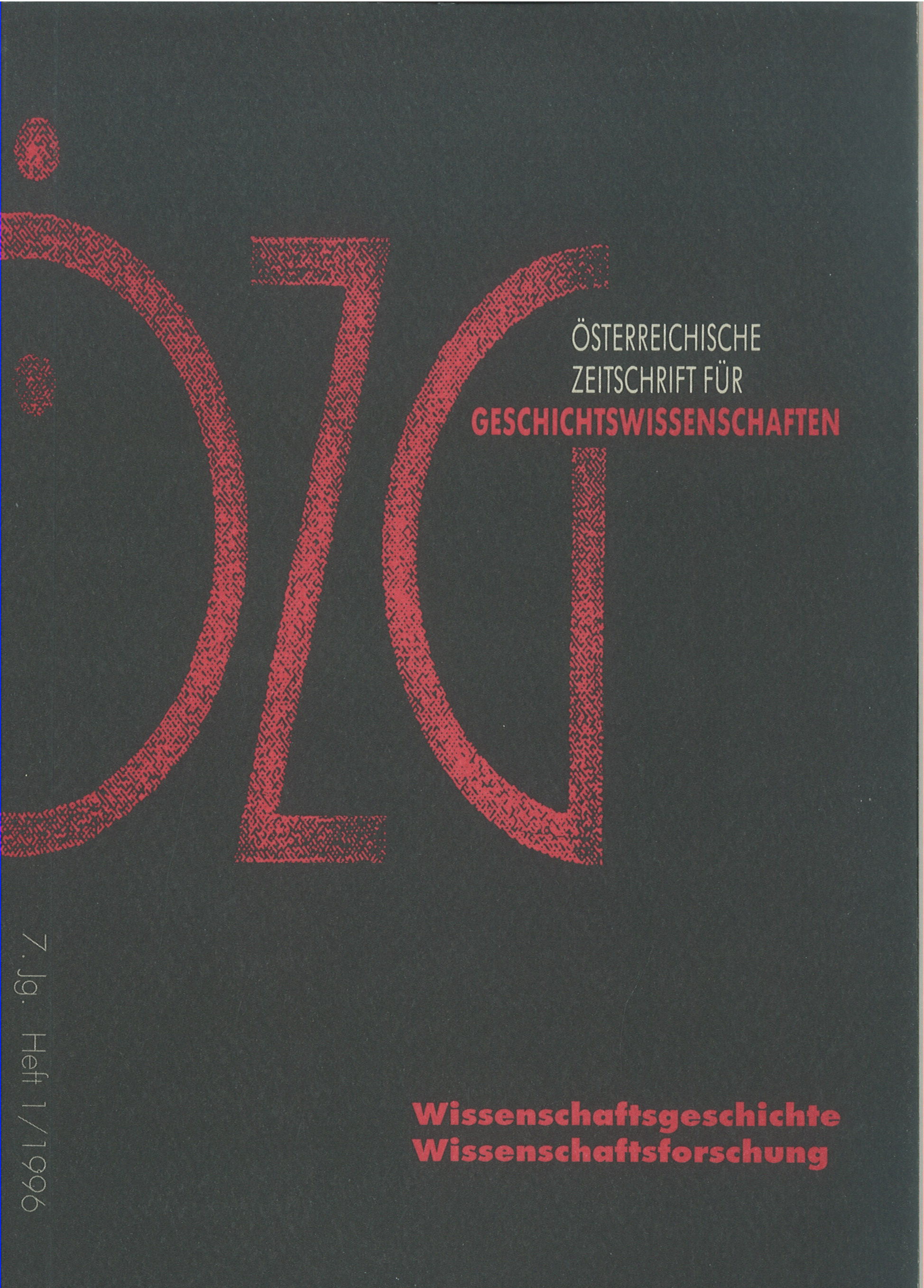Public Sciences
The Relationship between Sciences and Society in Vienna 1900–1938
DOI:
https://doi.org/10.25365/oezg-1996-7-1-3Abstract
Sciences produce data which - even if they should meet with public interest beyond their direct sphere - are not readily accessible. lt is in this context that institutions and channels of communication acquire a crucial role. On the basis of extensive empirical research the author depicts the specific forms of these institutions and lines of communication in the city of Vienna and finds the situation dominated by several peculiarities: i.e. the efforts of eminent scientists to popularize the findings of the natural sciences, the central role of the labour movement in setting up special institutions of adult education, the socalled Volkshochschulen, the People's Highschools and the large interest these topics met within the media of the comparatively small segment of the liberal bourgeoisie. This popularizing of the sciences is being viewed as a multidimensional problem which has repercussions on the sciences themselves, increases the impact of sciences and technology on cveryday life, furthers the evolution of a science-technology-complex and last but not least serves as a collateral in securing ideologies such as socialism or liberalism.


